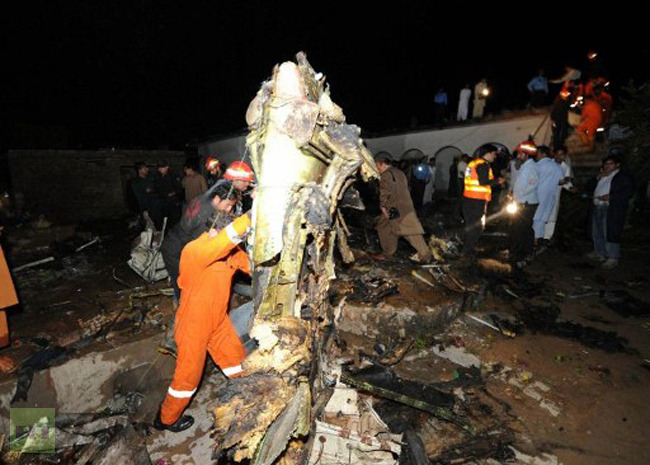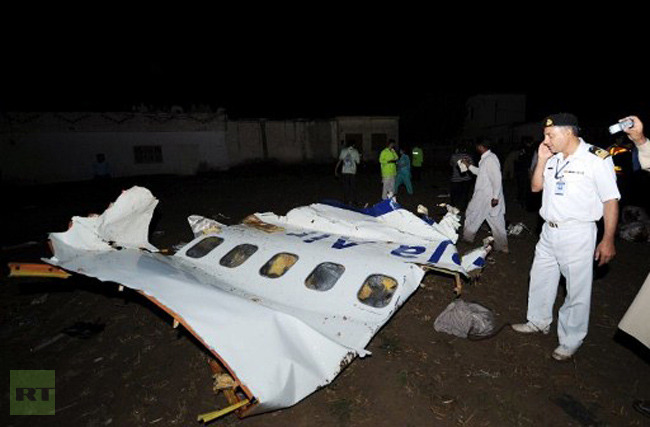
Islamabad, April 21: A total of 127 people were killed when a Boeing 737-200 of Bhoja Air crashed a short distance from the international airport in the Pakistani garrison city of Rawalpindi, the second such accident in less than two years.
Bhoja Air's flight B4-213 from Karachi to Islamabad lost contact with air traffic control shortly after 6.30 pm on Friday as it was coming in to land at the Benazir Bhutto International Airport, which serves both Islamabad and Rawalpindi, amidst bad weather.
The plane slammed into the ground at Hussainabad village, located less than 10 km from the airport.
Debris was scattered over an area of over one kilometre and parts of the aircraft fell on some houses in the village though there were no reports of casualties on the ground.
All 121 passengers, including 11 children and infants, and six crew members were killed instantly, officials said.
Mohammad Asif Majeed, director of the Disaster Management Directorate, confirmed there were no survivors.
He said the airliner had crashed on a "cluth of houses in a village".
The civil aviation authority ordered an investigation to ascertain the cause of Friday's crash. Search teams that fanned out across the crash site faced problems in the initial stage due to rain and lack of electricity.
Authorities later sent generators and search lights to the site and investigators located the Bhoja Air airliner's "black box" or flight data recorder late in the night.
Bodies and body parts were taken from the crash site to the state-run Pakistan Institute of Medical Sciences in Islamabad, where authorities began conducting DNA tests to hand over the remains to the next of kin.
Interior Minister Rehman Malik said the remains of at least 120 people had been brought to PIMS early this morning.
Malik said Farooq Bhoja, a member of the family that owns Bhoja Air, was included on the interior ministry's exit control list, a document with the names of people barred from travelling out of Pakistan.
An FIR had been registered and the ongoing investigation would determine whether aircraft was "technically capable", Malik said.
The interior minister, who visited the crash site last night, told reporters that the wings of the aircraft were on fire before it crashed.
Islamabad and Rawalpindi had experienced bad weather, including rain and lightning, at the time of the accident, and several witnesses told TV news channels that they had seen the aircraft burst into flames after being hit by lightning shortly before it crashed.
However, there was no official confirmation of reports of a lightning strike.
Capt Arshad Mehmood, a Pakistan Navy pilot who lives near the site of the crash, told reporters that he had seen the aircraft stall and descend rapidly before it hit the ground.
Mehmood said he believed the pilot had "probably lost control" of the aircraft in "very rough weather".
This was the second major air disaster in the vicinity of the Pakistani capital since July 28, 2010, when an Air Blue airliner slammed into the Margalla Hills in cloudy weather, killing all 152 people on board.
Anxious people gathered at the airports in Karachi and Rawalpindi to get information about the crash.
Many broke down and cried. Among the passengers were a newly wed couple, Sania Abbas and Sajjad Ali Rizvi, who were on their way to Islamabad for their honeymoon.
Bhoja Air was revived recently after being closed for over a decade since it ran into financial problems in 2001.
Media reports said the airline had a fleet of ageing aircraft, mostly Boeing 737-200s.







Comments
Add new comment